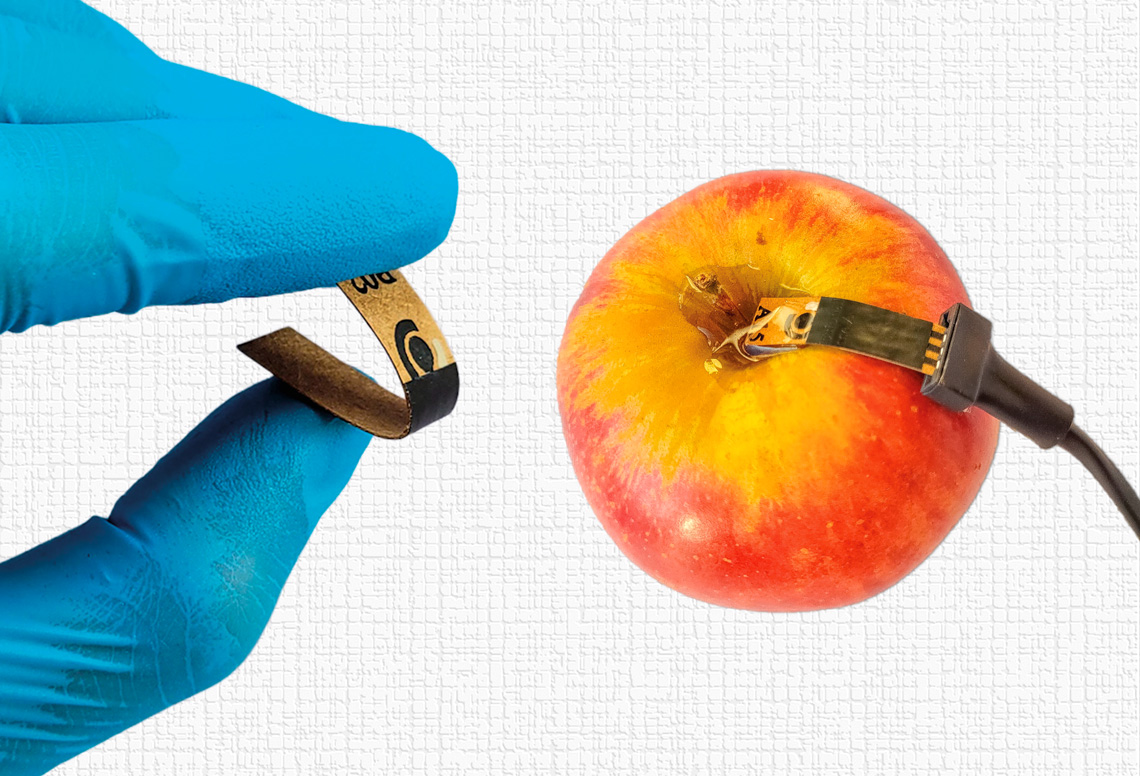Tested on apples and cabbages, an electrochemical sensor made of kraft paper connected to an electronic device is able to detect the fungicide carbendazim—which is banned in Brazil and many other countries—within just a few minutes and report the result via a cell phone application. Developed at the São Carlos Institutes of Physics and Chemistry at the University of São Paulo (IFSC and IQSC at USP), the device is similar to the glucose monitors used by diabetics. It consists of a paper substrate and three carbon electrodes dipped in an acidic solution. “When it comes into contact with a sample contaminated with carbendazim, the sensor induces an electrochemical oxidation reaction that detects the fungicide,” José Luiz Bott Neto, one of the authors of the paper from the IFSC, told Agência FAPESP. According to Neto, the sensor presented similar results to conventional devices made of plastic or ceramic (Food Chemistry, June 1, 2022).
RepublishTechnology
Sensor detects fungicide

Kraft-paper device attached to electrodes resembles a blood glucose monitor
José Luiz Bott Neto/ IFSC-USP